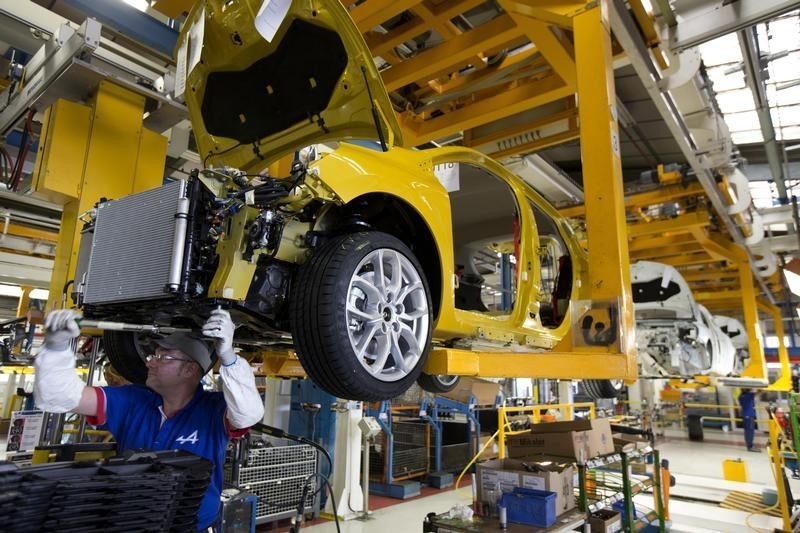This post was originally published on this site
https://i-invdn-com.investing.com/trkd-images/LYNXMPEI9G08G_L.jpg
PARIS (Reuters) – Renault (EPA:RENA) unveiled its new French-made electric Renault 4 at the Paris Motor Show on Monday, as President Emmanuel Macron announced bigger subsidies for poorer families to buy electric vehicles (EV) and pushed for more local production.
In an interview with business daily Les Echos before visiting the show, Macron said EV subsidies for lower-income households would rise to 7,000 euros ($6,826) next year from 6,000 euros, while falling to 5,000 euros for other French buyers.
He added a “social leasing” scheme helping low-income families access an EV for 100 euros per month would start in early 2024.
Most EVs are currently more expensive than fossil-fuel equivalents and are unaffordable for many.
“We have an industrial strategy in place for people to buy more and more French (cars),” Macron told Les Echos.
Renault’s new EV, a small SUV with stylistic nods to the iconic 4L of the 1960s, will be produced at the carmaker’s Maubeuge plant in northern France and will go on sale in 2025.
A lack of French-made EVs is a particularly sensitive subject at an auto show on home turf where Chinese brands have a strong presence.
Apart from the aging Renault Zoé, the new Mégane, the Kangoo van and two small SUVs made by Stellantis’s Opel and DS brands, all the 100% electric models sold by French carmakers are assembled abroad.
Macron told Les Echos that, after focusing Renault’s EV production in Douai and Maubeuge, he would appear with Stellantis CEO Carlos Tavares at the Paris show to announce new locally-made electric or hydrogen models.
According to a source close to Stellantis, these models could include electric versions of the Peugeot (OTC:PUGOY) 408 and 308, currently only available in combustion-engine and hybrid versions assembled in Mulhouse.
The Renault 4 will join the new electric Kangoo, produced in Maubeuge, and new Mégane manufactured in Douai. The electric Scenic and Renault 5 will also go into production in Douai by 2024.
The Renault group aims to go fully electric by 2030 and at an investor day on Nov. 8 is due to outline its strategy to create a unit focused on electrification and software, the auto industry’s main focus.
A separate unit will specialise in its legacy business making internal combustion engine cars.
Asked about boosting subsidies for European-made EVs, as the United States has done with its recently-passed Inflation Reduction Act, Macron told Les Echoes he had favoured this approach for years.
“I strongly defend a European preference,” he said.
($1 = 1.0255 euros)

